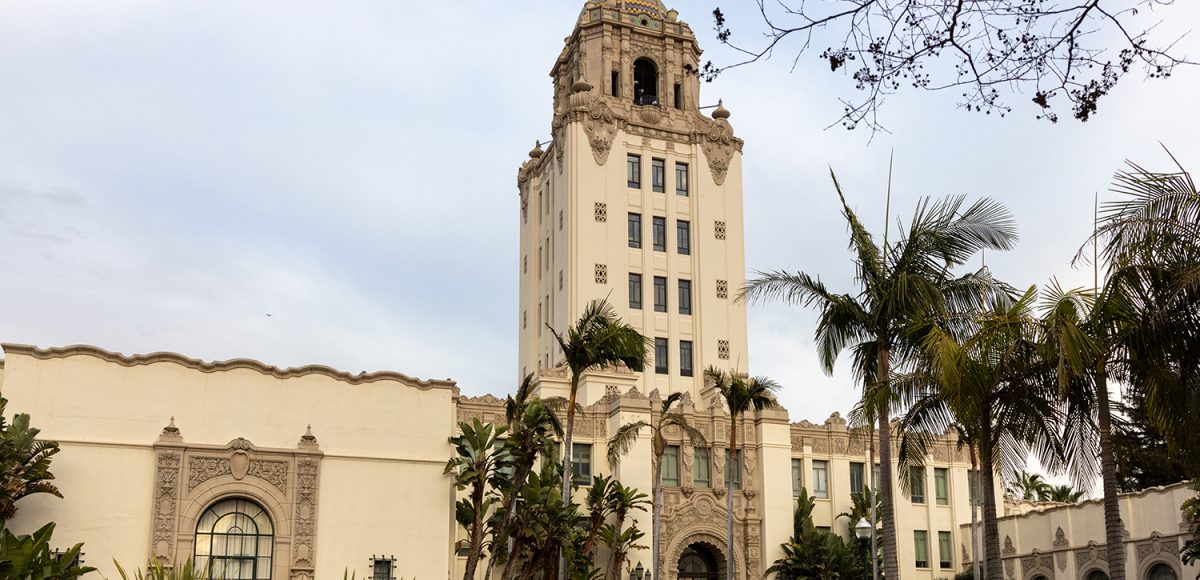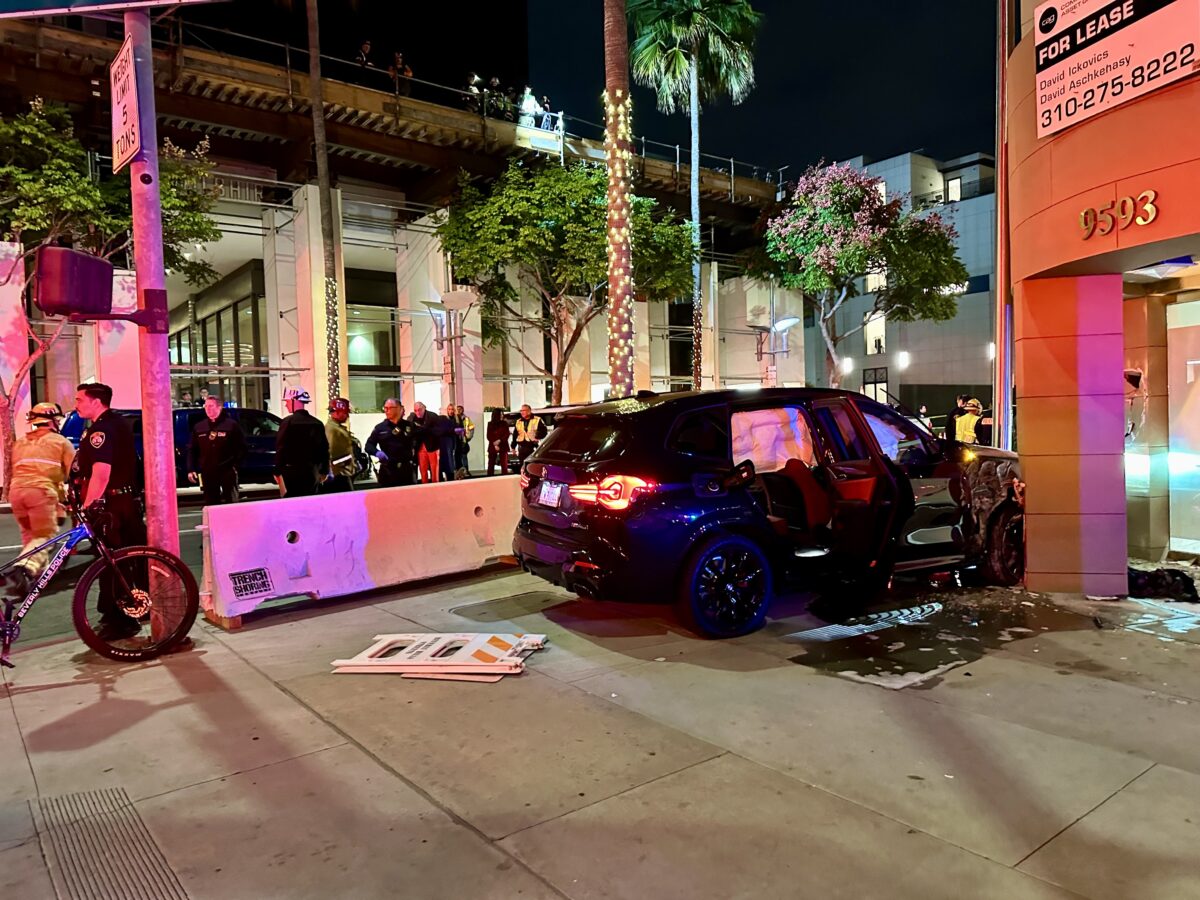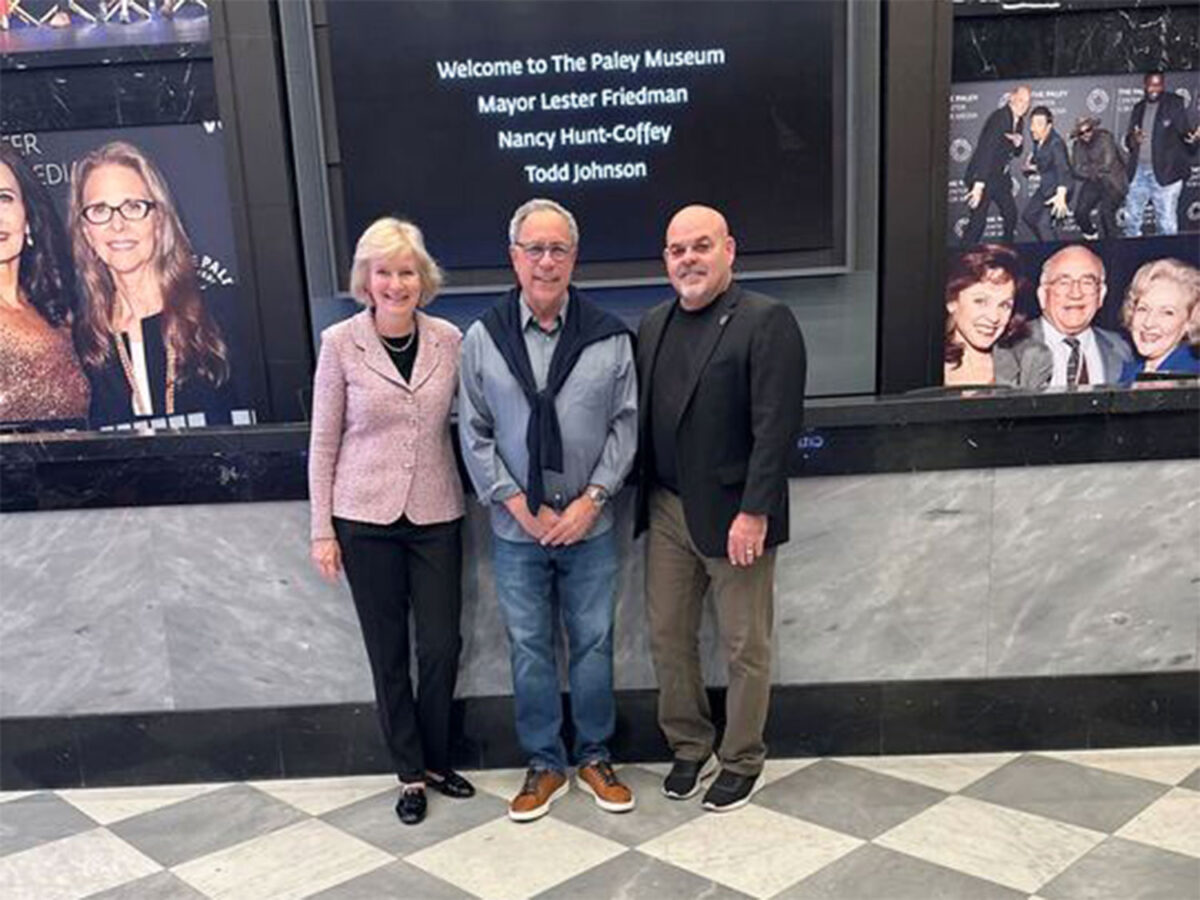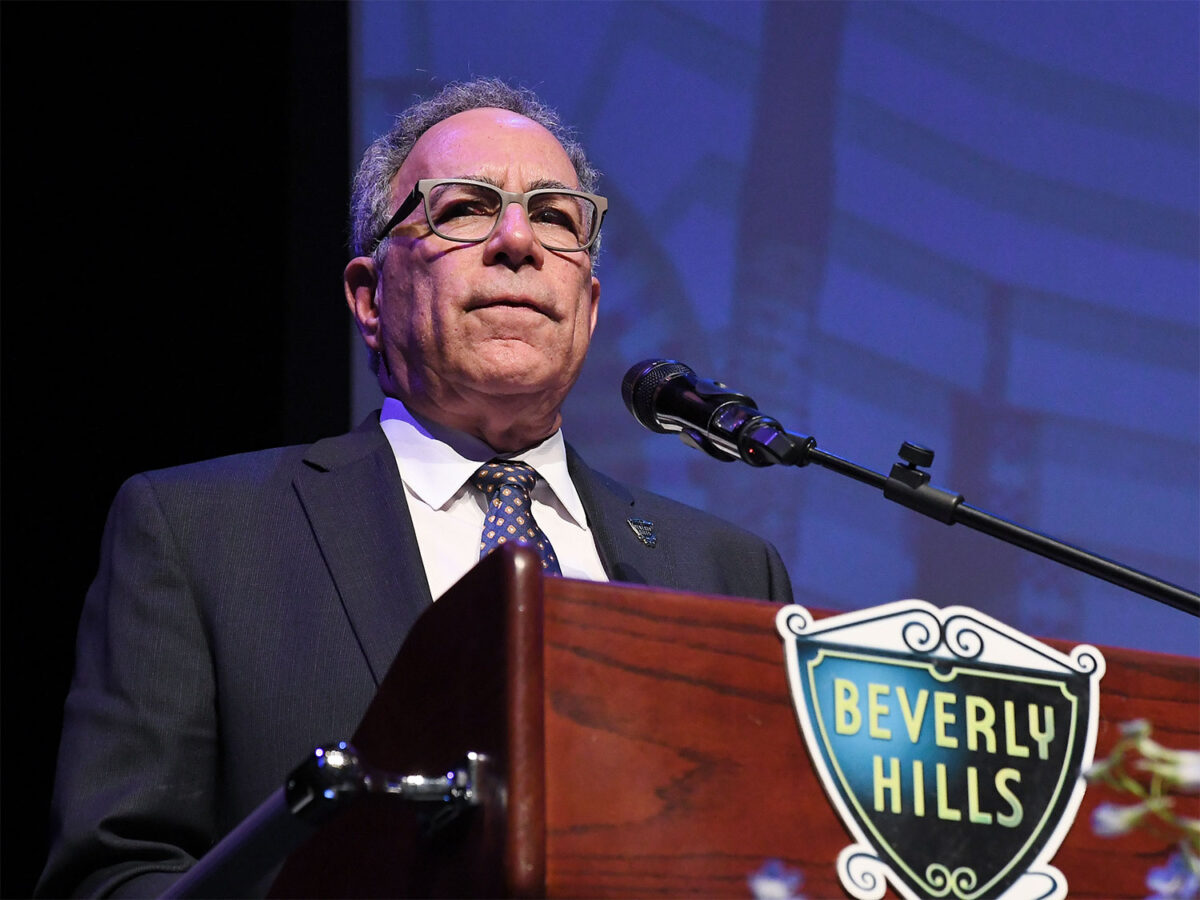The Beverly Hills City Council approved at its Nov. 15 meeting a $665,000 six-month pilot program to help homeless people. Approximately $421,000 of the money will go toward a no-bid contract to Nastec International, the Calabasas-based private security firm that has contracted with Beverly Hills since 2020.
In February, the city gave Nastec an added $817,000 contract to provide armed security. Nastec was first hired by the city amid concerns over 2020 election protests. It has since been retained due to general concerns regarding crime.
Multiple councilmembers questioned what the Nastec security workers would do with the unhoused person.
“Where would we take them?” said Councilmember John Mirisch.
Jenny Rogers, director of community services, said that was not clear yet. The city does have a contract with a hotel to house some people, Rogers said, and is seeking to partner with more shelters.
The pilot program also will give $83,000 to Bonterra, a software company that will track services provided to homeless individuals in Beverly Hills. And Step Up on Second, a Santa Monica-based mental health services provider, is set to receive $122,000 to expand their homeless outreach hours.
their homeless outreach hours.
Noting Step Up on Second’s record of collecting data on the homeless, Mirisch suggested providing more money for Step Up on Second and less for Nastec.
But councilmembers did not translate their objections into amending the measure.
Vice-Mayor Julian Gold, for example, sought performance metrics for the program and also wondered how the security company would appropriately deal with the homeless. “We haven’t talked about what training looks like,” Gold said.
But “rather than going through my laundry list” of concerns, Gold said he would vote on the pilot program now and revisit later with an eye toward performance metrics.
The measure follows an August City Council meeting focused upon homelessness, where many residents testified the unhoused are a public safety issue.
There is little data on homelessness specifically in Beverly Hills. A one-day tally of the homeless earlier this year counted 27 people, according to a city report.
Beverly Hills v. SCE
In response to continuing power outages, Mayor Lili Bosse recommended the city send a formal complaint to the California Public Utilities Commission. Bosse also said the city might sue Southern California Edison. Those developments came after Larry Chung, local public affairs vice president at SCE, and Paul Grigaux, the utility’s distribution vice president, answered questions – but mostly listened to criticisms – from councilmembers.
Protracted exchanges between public utilities officials and councilmembers previously took place at the Oct. 13 Council meeting. Since then, there have been additional blackouts including a three-hour outage in the Trousdale neighborhood on Oct. 24.
A fire on Nov. 12 on the 400 block of Shirley Place was also fresh on the Councils’ minds. The conflagration did not cause any reported injuries, but it destroyed a car port, three vehicles and required resident evacuations, according to the Beverly Hills Fire Department.
Councilmembers and residents from the Trousdale neighborhood argued that power outages are not just an inconvenience leading to spoiled food but a serious health and safety issue. Bosse posed the hypothetical of someone who may be hooked up to an electronic medical device.
Also, the councilmembers worried about police resources being thinned amid responding to blackout-related issues.
According to Bosse, the city is “united” in its animus to Southern California Edison and “hundreds of residents” are watching this meeting.
“There are people who are literally living in fear,” Bosse said.
“I left a third-world country so I wouldn’t have to deal with these types of things,” said Councilmember Sharona Nazarian, who is an Iranian immigrant.
For its part, SCE restated plans that it would complete an upgrade of a Harratt circuit in Trousdale by March 31. The circuit, a source of recent outages, is to be upgraded from four to 16 kilowatts of power.
Chung acknowledged there would be future blackouts, some planned, others not.
“There will be more outages,” Chung said, but added the durations should be “much shorter.”
Also testifying Tuesday night was Stephen Sawyer, a government relations representative from Spectrum, the brand name of cable and Internet giant Charter Communications.
According to a presentation from Shana Epstein, the city director of Public Works, “Staff periodically receives complaints about poor service” from Spectrum though, “The vast majority of the complaints are resolved to the city’s satisfaction once city staff is able to redirect the calls through a more responsive avenue.”
Sawyer recommended residents download the Spectrum app as they can communicate their issue quicker through there, particularly when Internet service is down. Bosse expressed skepticism about this solution and related that residents are complaining to her about long wait times (Sawyer said he would get back to the city about average customer wait times).
Still, the tone of the Spectrum discussion was less combative. Unlike SCE, Spectrum does not have a service monopoly. Indeed, councilmembers related their own experiences with the company. Gold, for example, informed Sawyer he no longer uses Spectrum.
Wilshire Skyline Project
After a three-hour debate in an Oct. 28 meeting, the Planning Commission approved developer Wilshire Skyline’s six-story, 29-unit development at 149-159 S. Maple Drive.
The project will displace three smaller multifamily buildings and up to eight tenants.
Three residents spoke out against the project on Tuesday, leading Mirisch to call for the Council to take up at the next meeting a plan to protect residents displaced by developments.
Airbnb Violation
The city attorney’s office noted at the meeting that a resident must pay $75,000 and allow their home to be searched without notice by the city as part of a settlement reached over an illegal short-term rental.
Under city law, residents cannot use their homes more than twice each calendar year for a short-term rental. Per City Attorney Laurence Weiner, a resident listed their home on Airbnb without first reporting it to the city.







